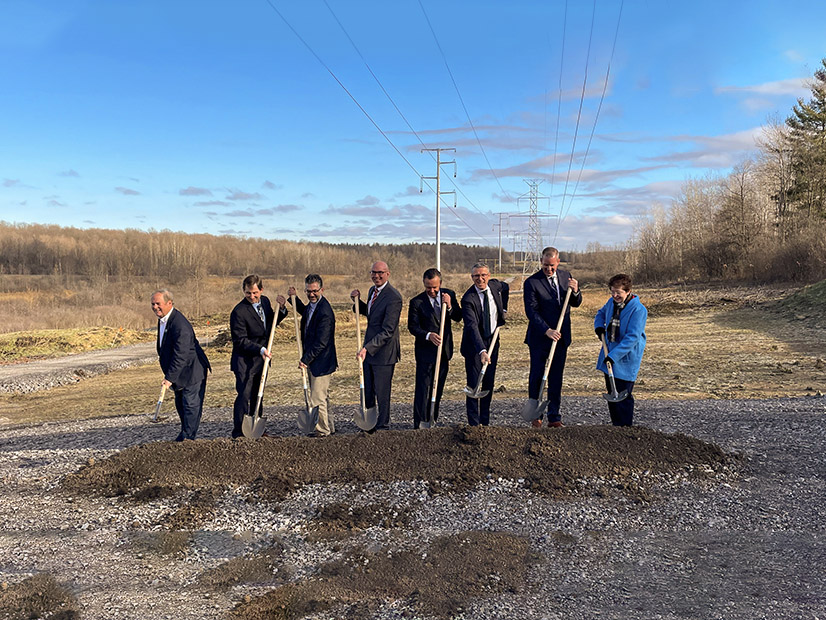FERC on Thursday approved the New York Power Authority’s transmission rates for the Smart Path Connect transmission project (SPCP) after the utility showed it received state approval for the project (EL22-15-001, ER22-1014-002).
The commission had approved NYPA’s request fthe abandoned plant incentive (API) in March 2022 — as well as a 50-basis-point return on equity adder and performance-based ROE incentive later in July — but on the condition that the New York Public Service Commission grant the project a certificate of environmental compatibility and need, and approve its environmental management and construction plan (EMCP). These approvals, FERC said, would show the project addresses reliability and congestion, required for the incentives under Federal Power Action 219.
The PSC granted the project, which aims to rebuild about 100 miles of old 230-kV transmission lines in northern New York as 345 kV, the certificate in August 2022 (21-T-0340). But NYPA told FERC that the New York commission has only approved an EMCP for part of the project.
“NYPA explains that, because of the expedited nature of the project, and in consultation with staff from the New York Department of Public Service, the EMCP approval process for NYPA’s part of the project was broken into two segments to enable a timely start to construction of the project,” FERC said in its order. NYPA expects approval of the second segment this February.
NYPA, however, argued that “the EMCP has no bearing on whether the project reduces congestion and saves consumers money,” as those issues were addressed in the certificate. Furthermore, the remaining EMCP approval only relates to how the project will be physically constructed, versus whether the SPCP is needed.
FERC agreed with NYPA. “Upon review of the EMCP approval included with [a] supplemental filing, we agree with NYPA that the EMCP approvals are related to physical construction and do not address reliability or congestion criteria,” it said.
Construction recently began on the project, with an anticipated in-service date of fall 2025, though significant work remains.
NYPA estimates the total capital cost will be $1.1 billion, with the utility responsible for $641.3 million. The PSC found that the project will produce congestion cost savings of approximately $450 million, as it “represents an upgrade to the transmission backbone system of New York that will improve reliability throughout the state.”



